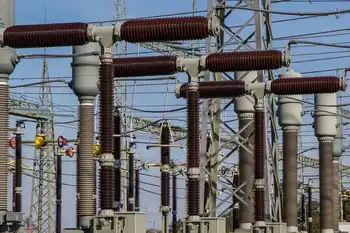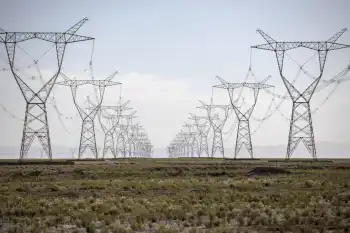Windpower NIMBYs scolded
By The Independent
NFPA 70e Training - Arc Flash
Our customized live online or in‑person group training can be delivered to your staff at your location.

- Live Online
- 6 hours Instructor-led
- Group Training Available
In unashamed class-warrior style, Mr. Prescott lashes out at opponents of windpower who successfully block planning applications for wind turbines because they may spoil their “chocolate box view”. He told the British Wind Energy Association (BWEA) at its annual conference in Liverpool: “We cannot let the squires and the gentry stop us meeting our moral obligation to pass this world on in a better state to our children and our children's children.”
Mr. Prescott, who played a key role in brokering the Kyoto Protocol, the current international climate treaty, in 1997, has now taken up a new and vocal role as the rapporteur on climate change for the Council of Europe, and been touring schools recently lecturing on the dangers of global warming.
He is addressing the BWEA today as it announces that the UKÂ’s installed windpower capacity has now reached four gigawatts, enough to power all the 2.3m homes in Scotland. (A gigawatt is roughly the output of a big coal-fired power station.)
It took 14 years, until 2005 for the first GW of wind energy capacity to be installed, but only 20 months to the 2nd GW and 18 months to the 3rd, while industry experts predict that next year will see the installation of both the 5th and the 6th GW in quick succession, as Britain moves to meet its target of 30GW of wind power by 2020.
However, as much as nine gigawatts of wind capacity is currently stalled in the planning system, and approvals for wind farms are only running at 25 per cent of applications.
“Time and time again,” Mr. Prescott says, "We see ambitious and worthy wind turbine applications defeated by a vocal minority of landowners and NIMBYs. They hire professional consultants to delay, obstruct and ultimately defeat these applications.
"It's all very well arguing that a wind turbine might spoil the chocolate box view for a few homeowners. But did these same people campaign against the mobile phone masts that allow them to call locals to organize their protests? Did they moan about the pylons that bring electricity to their hamlets to power their computers that sent out emails to lobby the councils against wind farm applications? Of course they didn't! They accepted them because they were necessary."
He adds: "The government has developed a strategy for the UK's contribution towards a global solution to climate change. It has created national and global policies but it also requires the successful delivery of this strategy at a local level. It is absolutely scandalous that three quarters of applications are now being refused - the highest it's ever been."
Mr. Prescott suggests that in future, local authorities should be compelled to designate areas for the development of wind farms. The Government should "encourage the delivery of renewable targets at the local level," he says, adding: "This could work in a similar way to waste recycling legislation whereby a planning authority would face a sanction if it missed its targets."
Mr. Prescott is stoking a row that flared up last March when the Energy and Climate Change Secretary, Ed Miliband, said that opposition to wind farms should become as socially unacceptable as failing to wear a seatbelt or driving through a pedestrian crossing. He was roundly criticized by anti-wind campaigners, not least James Lovelock, the celebrated environmental scientist and founder of the Gaia theory of the earth as a single organism, who said that Mr Miliband's comments were an erosion of freedom and "near to what I see as fascism."
Mr. Prescott is undeterred by such comments. He says today that "the squires and the gentry" have "had it their way for far too long," adding "So let me tell them loud and clear: it's not your backyard anymore- it's ours!"











